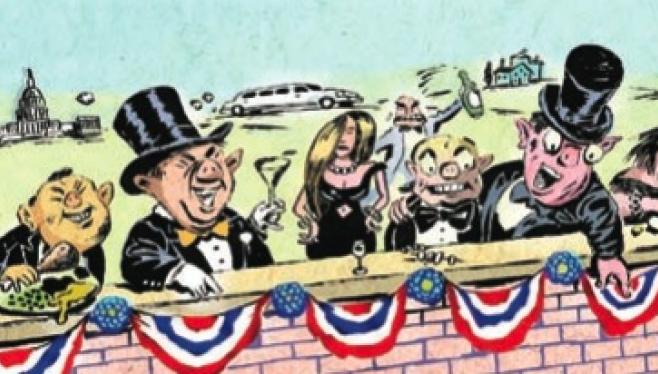In 1789, the French Revolution began. How ?
On May 5, 1789, Louis XVI convened the Estates-General. Almost immediately, it became apparent that this archaic arrangement—the group had last been assembled in 1614—would not sit well with its present members. Although Louis XVI granted the Third Estate greater numerical representation, the Parlement of Paris stepped in and invoked an old rule mandating that each estate receive one vote, regardless of size. As a result, though the Third Estate was vastly larger than the clergy and nobility, each estate had the same representation—one vote. Inevitably, the Third Estate’s vote was overridden by the combined votes of the clergy and nobility.
The essay of Angelo Codevilla in American Spectator in 2014 described a similar phenomenon in 21st century America. American citizens begged for control of illegal immigration and crony capitalism.
As over-leveraged investment houses began to fail in September 2008, the leaders of the Republican and Democratic parties, of major corporations, and opinion leaders stretching from the National Review magazine (and the Wall Street Journal) on the right to the Nation magazine on the left, agreed that spending some $700 billion to buy the investors’ “toxic assets” was the only alternative to the U.S. economy’s “systemic collapse.” In this, President George W. Bush and his would-be Republican successor John McCain agreed with the Democratic candidate, Barack Obama. Many, if not most, people around them also agreed upon the eventual commitment of some 10 trillion nonexistent dollars in ways unprecedented in America. They explained neither the difference between the assets’ nominal and real values, nor precisely why letting the market find the latter would collapse America. The public objected immediately, by margins of three or four to one.
Today, we have a situation in which the Muslim world of the middle east is being overrun by a radical faction of Muslims who call themselves ISIS.
Richard Fernandez, whose writing I read every day, has another good discussion of what is happening and likely to happen in the future.
The anniversary of the U.S. war against the Islamic State passed with little notice. It was August 7 of last year that President Obama authorized the first airstrikes against ISIS in Iraq, a campaign he expanded a month later to include targets in Syria. So far this month, the president has delivered remarks on the Voting Rights Act, his deal with Iran, the budget, clean energy, and Hurricane Katrina. ISIS? Not a peep.






